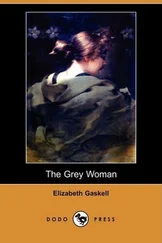Now, however, the time drew near when it suited her to make her husband aware of the connection his son had formed; so, with many tears, and much seeming reluctance, she broke the intelligence to him — taking good care, at the same time, to inform him of the light character Nest had borne. Nor did she confine this evil reputation to her conduct before her marriage, but insinuated that even to this day she was a "woman of the grove and brake" — for centuries the Welsh term of opprobrium for the loosest female characters.
Squire Griffiths easily tracked Owen to Ty Glas; and without any aim but the gratification of his furious anger, followed him to upbraid as we have seen. But he left the cottage even more enraged against his son than he had entered it, and returned home to hear the evil suggestions of the stepmother. He had heard a slight scuffle in which he caught the tones of Robert's voice, as he passed along the hall, and an instant afterwards he saw the apparently lifeless body of his little favourite dragged along by the culprit Owen — the marks of strong passion yet visible on his face. Not loud, but bitter and deep were the evil words which the father bestowed on the son; and as Owen stood proudly and sullenly silent, disdaining all exculpation of himself in the presence of one who had wrought him so much graver — so fatal an injury — Robert's mother entered the room. At sight of her natural emotion the wrath of the Squire was redoubled, and his wild suspicions that this violence of Owen's to Robert was a premeditated act appeared like the proven truth through the mists of rage. He summoned domestics as if to guard his own and his wife's life from the attempts of his son; and the servants stood wondering around — now gazing at Mrs. Griffiths, alternately scolding and sobbing, while she tried to restore the lad from his really bruised and half-unconscious state; now at the fierce and angry Squire; and now at the sad and silent Owen. And he — he was hardly aware of their looks of wonder and terror; his father's words fell on a deadened ear; for before his eyes there rose a pale dead babe, and in that lady's violent sounds of grief he heard the wailing of a more sad, more hopeless mother. For by this time the lad Robert had opened his eyes, and though evidently suffering a good deal from the effects of Owen's blows, was fully conscious of all that was passing around him.
Had Owen been left to his own nature, his heart would have worked itself to doubly love the boy whom he had injured; but he was stubborn from injustice, and hardened by suffering. He refused to vindicate himself; he made no effort to resist the imprisonment the Squire had decreed, until a surgeon's opinion of the real extent of Robert's injuries was made known. It was not until the door was locked and barred, as if upon some wild and furious beast, that the recollection of poor Nest, without his comforting presence, came into his mind. Oh! thought he, how she would be wearying, pining for his tender sympathy; if, indeed, she had recovered the shock of mind sufficiently to be sensible of consolation! What would she think of his absence? Could she imagine he believed his father's words, and had left her, in this her sore trouble and bereavement? The thought madened him, and he looked around for some mode of escape.
He had been confined in a small unfurnished room on the first floor, wainscoted, and carved all round, with a massy door, calculated to resist the attempts of a dozen strong men, even had he afterward been able to escape from the house unseen, unheard. The window was placed (as is common in old Welsh houses) over the fire-place; with branching chimneys on either hand, forming a sort of projection on the outside. By this outlet his escape was easy, even had he been less determined and desperate than he was. And when he had descended, with a little care, a little winding, he might elude all observation and pursue his original intention of going to Ty Glas.
The storm had abated, and watery sunbeams were gilding the bay, as Owen descended from the window, and, stealing along in the broad afternoon shadows, made his way to the little plateau of green turf in the garden at the top of a steep precipitous rock, down the abrupt face of which he had often dropped, by means of a well-secured rope, into the small sailing-boat (his father's present, alas! in days gone by) which lay moored in the deep sea-water below. He had always kept his boat there, because it was the nearest available spot to the house; but before he could reach the place — unless, indeed, he crossed a broad sun-lighted piece of ground in full view of the windows on that side of the house, and without the shadow of a single sheltering tree or shrub — he had to skirt round a rude semicircle of underwood, which would have been considered as a shrubbery had any one taken pains with it. Step by step he stealthily moved along — hearing voices now, again seeing his father and stepmother in no distant walk, the Squire evidently caressing and consoling his wife, who seemed to be urging some point with great vehemence, again forced to crouch down to avoid being seen by the cook, returning from the rude kitchen-garden with a handful of herbs. This was the way the doomed heir of Bodowen left his ancestral house for ever, and hoped to leave behind him his doom. At length he reached the plateau — he breathed more freely. He stooped to discover the hidden coil of rope, kept safe and dry in a hole under a great round flat piece of rock: his head was bent down; he did not see his father approach, nor did he hear his footstep for the rush of blood to his head in the stooping effort of lifting the stone; the Squire had grappled with him before he rose up again, before he fully knew whose hands detained him, now, when his liberty of person and action seemed secure. He made a vigorous struggle to free himself; he wrestled with his father for a moment — he pushed him hard, and drove him on to the great displaced stone, all unsteady in its balance.
Down went the Squire, down into the deep waters below — down after him went Owen, half consciously, half unconsciously, partly compelled by the sudden cessation of any opposing body, partly from a vehement irrepressible impulse to rescue his father. But he had instinctively chosen a safer place in the deep seawater pool than that into which his push had sent his father. The Squire had hit his head with much violence against the side of the boat, in his fall; it is, indeed, doubtful whether he was not killed before ever he sank into the sea. But Owen knew nothing save that the awful doom seemed even now present. He plunged down, he dived below the water in search of the body which had none of the elasticity of life to buoy it up; he saw his father in those depths, he clutched at him, he brought him up and cast him, a dead weight, into the boat, and exhausted by the effort, he had begun himself to sink again before he instinctively strove to rise and climb into the rocking boat. There lay his father, with a deep dent in the side of his head where the skull had been fractured by his fall; his face blackened by the arrested course of the blood. Owen felt his pulse, his heart — all was still. He called him by his name.
"Father, father!" he cried, "come back! come back! You never knew how I loved you! how I could love you still — if — Oh God!"
And the thought of his little child rose before him. "Yes, father," he cried afresh, "you never knew how he fell — how he died! Oh, if I had but had patience to tell you! If you would but have borne with me and listened! And now it is over! Oh father! father!"
Whether she had heard this wild wailing voice, or whether it was only that she missed her husband and wanted him for some little every-day question, or, as was perhaps more likely, she had discovered Owen's escape, and come to inform her husband of it, I do not know, but on the rock, right above his head, as it seemed, Owen heard his stepmother calling her husband.
Читать дальше












